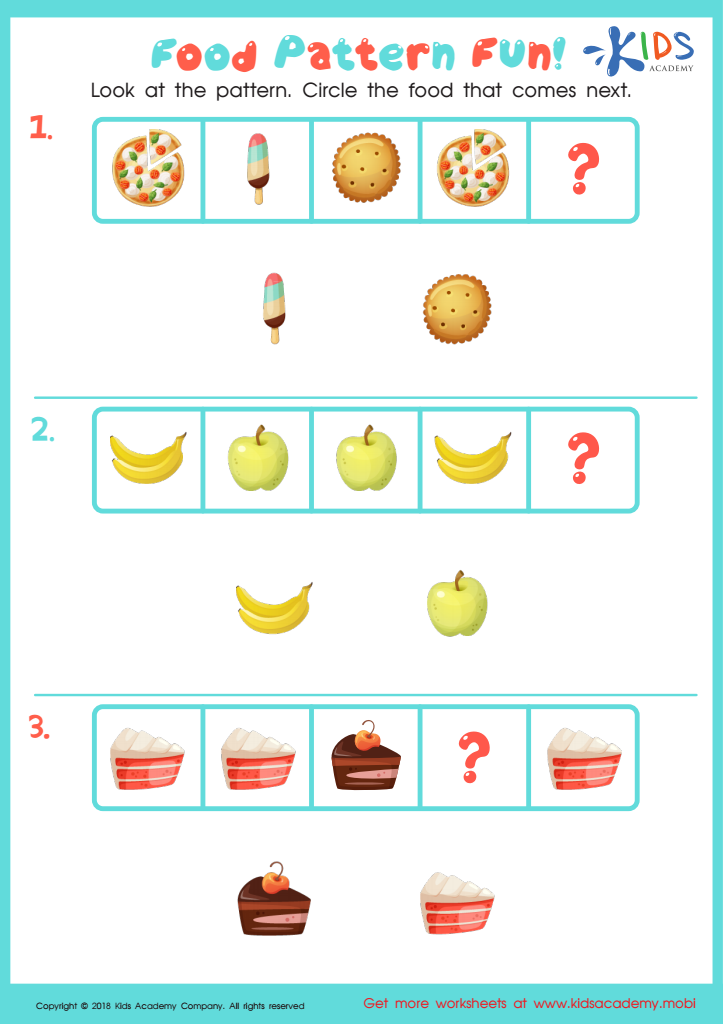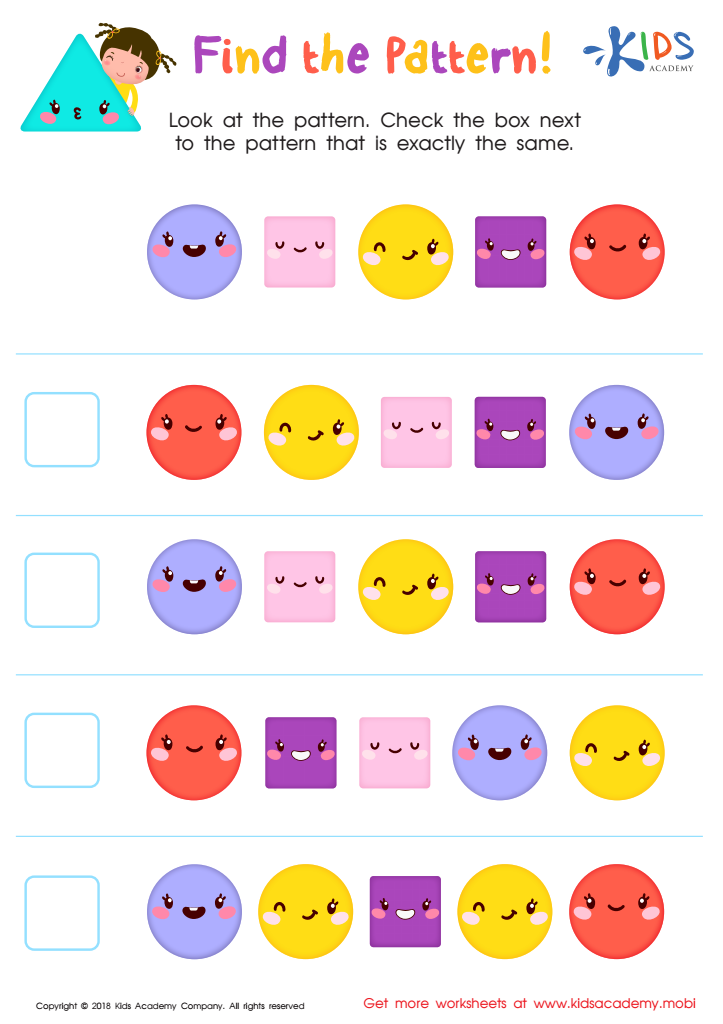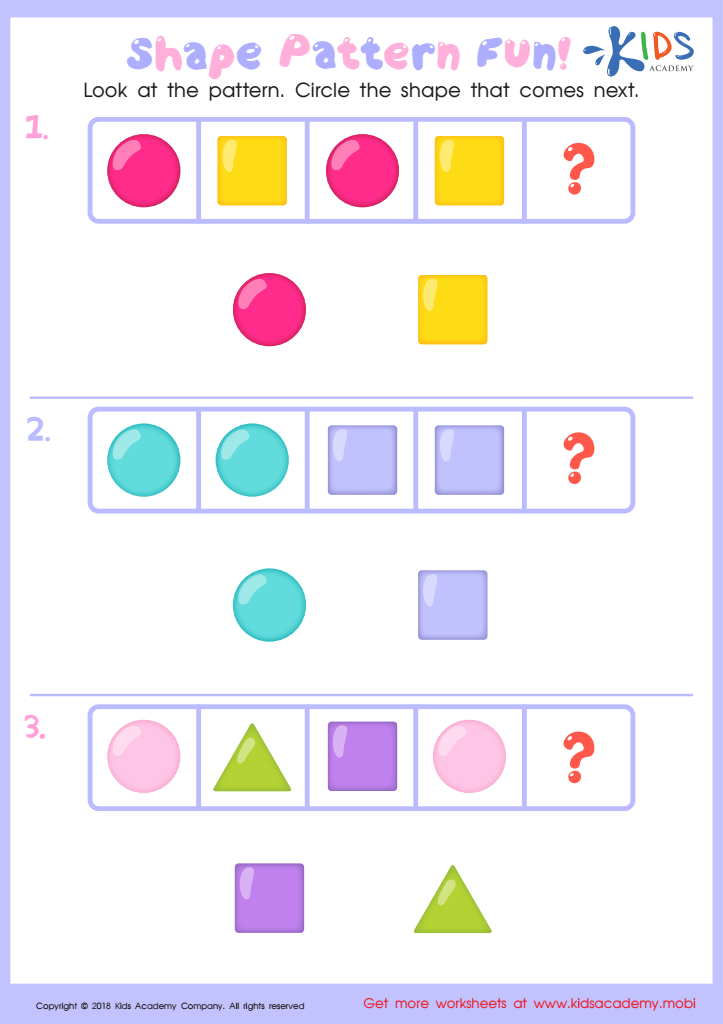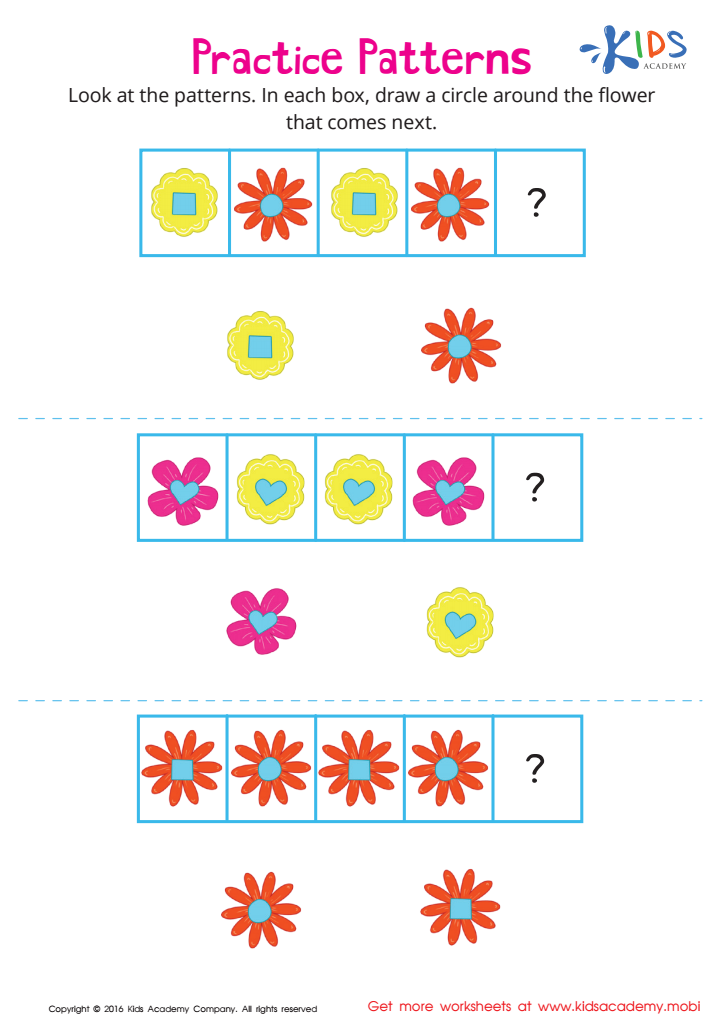Normal Difficulty Patterns Worksheets
5 filtered results
-
From - To
Introducing our "Normal Difficulty Patterns Worksheets" designed to engage young learners in recognizing and creating patterns with ease. Ideal for early grade students, these worksheets provide a balanced challenge to reinforce essential math skills. Each activity features colorful visuals and enjoyable exercises that promote cognitive development and critical thinking. From basic sequences to more complex arrangements, children will enhance their pattern recognition abilities while having fun! These printable resources are perfect for classroom use or home practice, ensuring that learners can explore the exciting world of patterns at their own pace. Download now and transform learning into an enjoyable adventure!


Food Pattern Fun Worksheet


Find the Pattern Worksheet


Make the Same Pattern Worksheet


Shape Pattern Fun Worksheet
Normal Difficulty Patterns are essential for parents and teachers focusing on child development and education. These patterns reflect the typical progression of learning skills and concepts among children. Understanding these patterns is crucial for several reasons.
Firstly, it helps adults set realistic expectations for children. Knowing what skills children are expected to acquire at various ages enables parents and teachers to provide appropriate support and interventions. Misunderstanding these patterns can lead to frustration, as children may struggle with skills they haven't yet developed, potentially diminishing their confidence and enthusiasm for learning.
Secondly, Normal Difficulty Patterns aid in identifying potential learning difficulties. Early recognition allows for timely interventions, enabling children to receive the targeted help they need, whether through specialized programs or individualized support. This proactive approach fosters a positive learning experience, facilitating healthy academic and social development.
Lastly, being aware of these patterns encourages a growth mindset. By celebrating progress within the context of these patterns, parents and teachers can promote resilience, determination, and a love of learning in children. In fostering an environment that understands and nurtures growth, adults play a pivotal role in shaping successful, well-adjusted learners.
 Assign to My Students
Assign to My Students

















